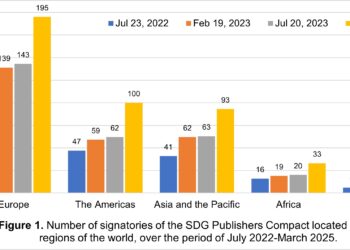
- Image via Wikipedia
Last week, I wrote about the troubles at Google Knol. Coincidentally, there has been an abundance of coverage relating to the apparent plateau of entries in Wikipedia. The blog Augmented Social Cognition has done a two-part series (link to Part 1, link to Part 2) on the topic, and CNET, the Economist, and the Guardian have weighed in.
To me, the most interesting story is the one in the Guardian, which tells of Augmented Social Cognition group (the same group running the aforementioned blog) and their analysis of a complete download of Wikipedia. They found that an elite editor’s chance of having an edit reverted (undone) was 1%, while an infrequent editor’s chances of a change being reverted had gone from 5% to 15% between 2003 and 2008. For editors that make one change per month, their chances of having their edits reverted are now upward of 25%.
But, as is so often the case with data, the real question isn’t the observation but the interpretation.
What does it mean?
For the Augmented Social Cognition group, the data seem to point to a resource constraint. Wikipedia is huge, and concentrating power in a smaller set of editors means there’s now a clear constraint on growth. This might explain the plateau.
Others accuse Wikipedia of exhibiting an elitist stripe in the cadre of editors at the core of the online reference. The apparent intolerance for green-horn editors and furtive fixers has some concerned their exclusionary approach will have a chilling effect on prospective new editors, choking off new blood when it’s needed most.
For others, the plateau means that Wikipedia is approaching the limit of its growth — having covered the obvious items, it’s now dropping some things and is slower to add new items.
Yet others feel that the slowdown is a sign of Wikipedia taking its search for quality over quantity seriously.
Ultimately, it’s probably a mix of all these factors. Wikipedia is well beyond exploring the scope of a large reference work, with 8 terabytes of information in it (that’s 1,200 DVDs of data). Its editors have to be more careful because their work is more prominent and scrutinized than ever, and they are probably a bit jaded by now. It would be natural for the editors to be forming an insular community of experience, as well, which from the outside might look elitist. Accusations about a lack of quality have probably made them more diligent, too.
As an experiment in how quickly, well, and efficiently a major reference work can be assembled, Wikipedia has set a new standard.
It’s not perfect, it may be too big, and it may no longer be a populist medium.
But really, after 8 years of learning how to do something new, what did you expect? Given the alternatives, isn’t this actually a sign of sanity and health?
(Thanks, DC, for the inspiration and links.)
Discussion
4 Thoughts on "Wikipedia’s Plateau: A Sign of Elitism, Maturity, or Both?"
Interesting analysis. This reminds me of Garvey and Griffith’s discussion of the evolution of scientific communication systems [1].
They maintain that when formal systems (say edited encyclopedias in this case) become too slow and restrictive, new informal systems (like Wikipedia) are likely to arise and compete with their formal counterparts [2].
However over time, these new informal systems tend to adopt more of the attributes of their formal counterparts — they become more restrictive and assume tighter gatekeeping characteristics. In the end, these informal systems become formalized communication channels and begin to suffer some of the same problems that they attempted to solve.
[1] Garvey, W. D., & Griffith, B. C. 1967. Scientific Communication as a Social System. Science 157: 1011-1016, http://dx.doi.org/10.1126/science.157.3792.1011
[2] G & G mostly concern themselves with journals and the rise of informal preprint services.
Great citations. It makes me think that the “what” is now emerging as more important while the “how” was what generated the initial idea. Ultimately, the notion was to create a reliable general reference (the “what”), but do it in a new way (the “how”). While how it was done was novel and interesting, what it has become and represents is increasingly powerful and enduring. That’s why some traits of prior attempts at general references have been replicated. Still, the “how” is pretty powerful here — while 25% of occasional edits get reverted, that means ~75% don’t. That’s by far the majority, so while Wikipedia is more restrictive than ever, it’s still far less restrictive than the old encyclopedias.
I think the comments on the Guardian and CNet articles are particularly interesting and present a picture of what it’s like for the uninitiated to try to participate in Wikipedia. The vast majority of the comments talk about adding factual information only to have it immediately deleted, how annoying it was, and how they’ll never bother going back to add anything ever again. I think that’s the common experience for most with participating in Wikipedia. The rules are arcane, and when they’re enforced, no one really understands what happened. There’s an insistence on following the form being more important than the content itself.
It’s fascinating that in the void of having an editorial board, the users formed one themselves. Nature abhors a vacuum I suppose. Although unlike most editorial boards who have a monetary stake in creating the best possible publication, the rewards offered by Wikipedia don’t necessarily drive editors in this same direction. It seems more about power and status of the individual editor within the community. As one commenter pointed out, editors will often go in and revert a stack of recent additions without even reading them, because the quantity of edits you make as an individual adds to your status, and apparently that’s more important than improving the quality of the material on Wikipedia. As such, it becomes the province of petty tyrants, and is heavily influenced by the opinions of whoever is the most persistent, the most willing to revert, rewrite, revert, rewrite, revert, rewrite until someone with a different opinion gives up.
![Reblog this post [with Zemanta]](http://img.zemanta.com/reblog_e.png?x-id=8c435f0b-c6fd-4670-9a06-32445ab61fa9)


